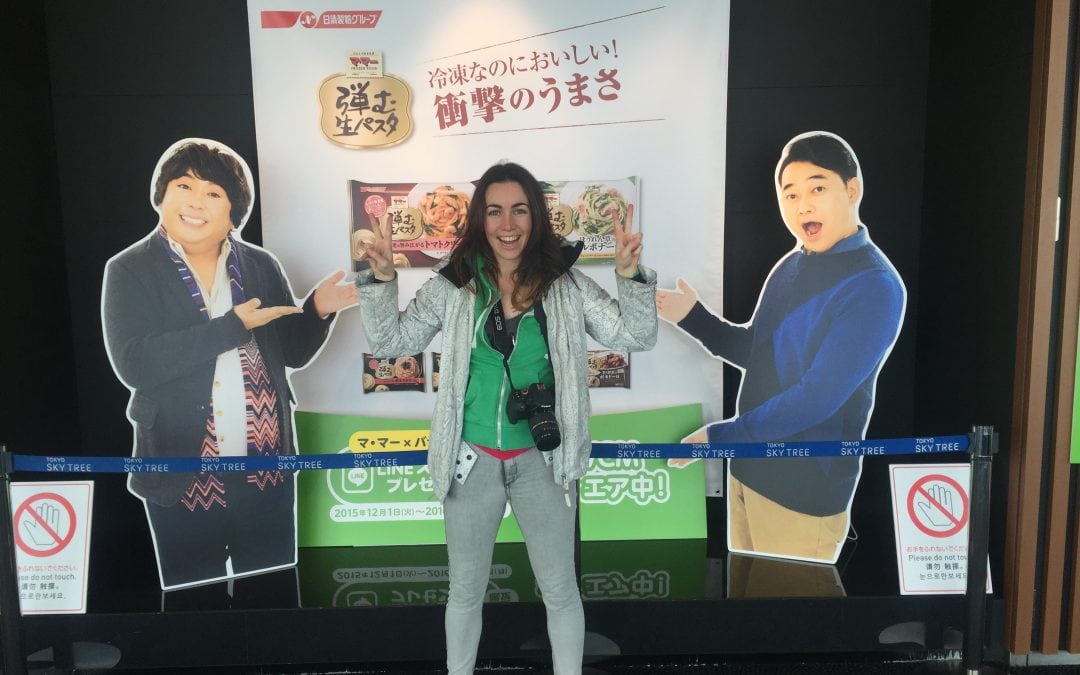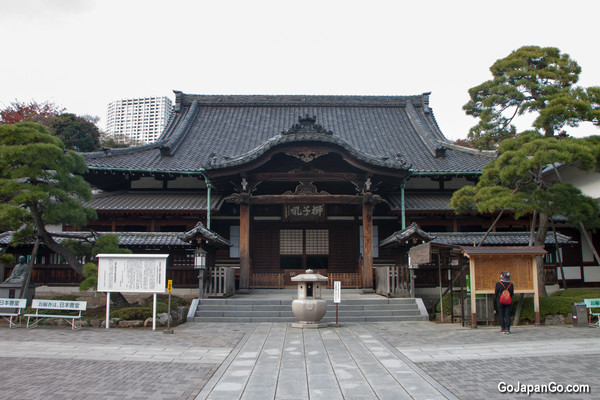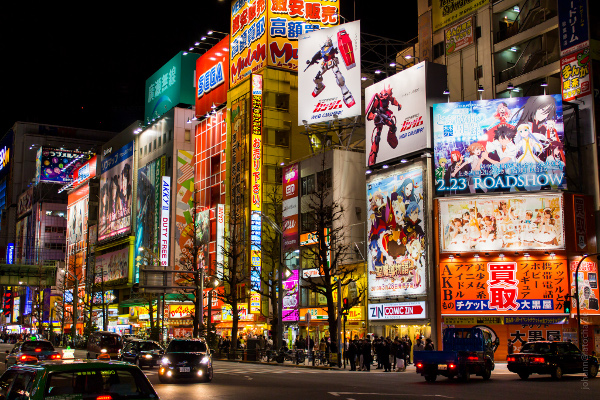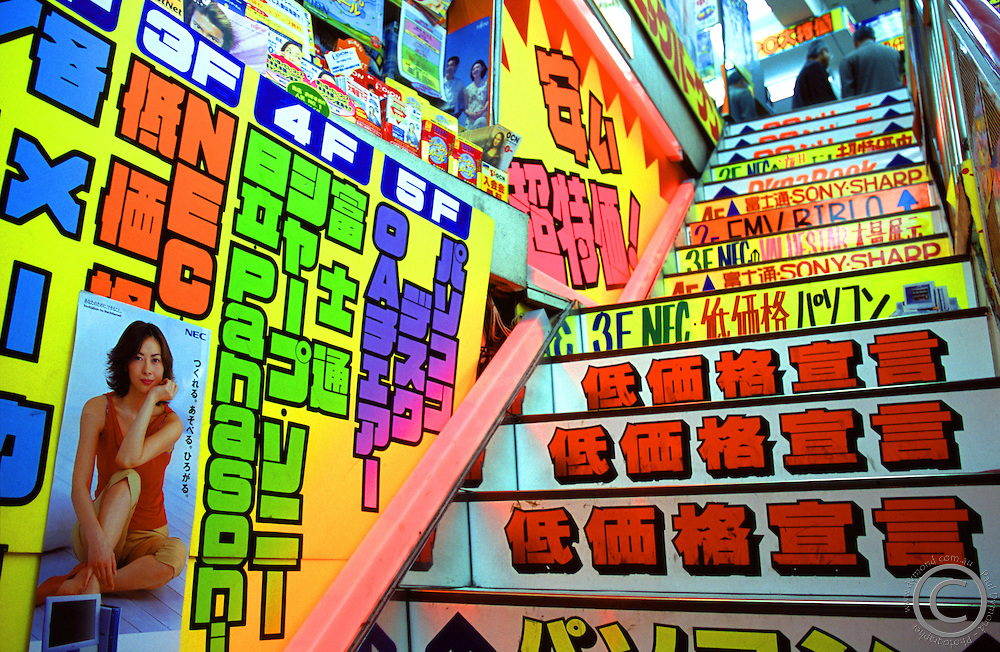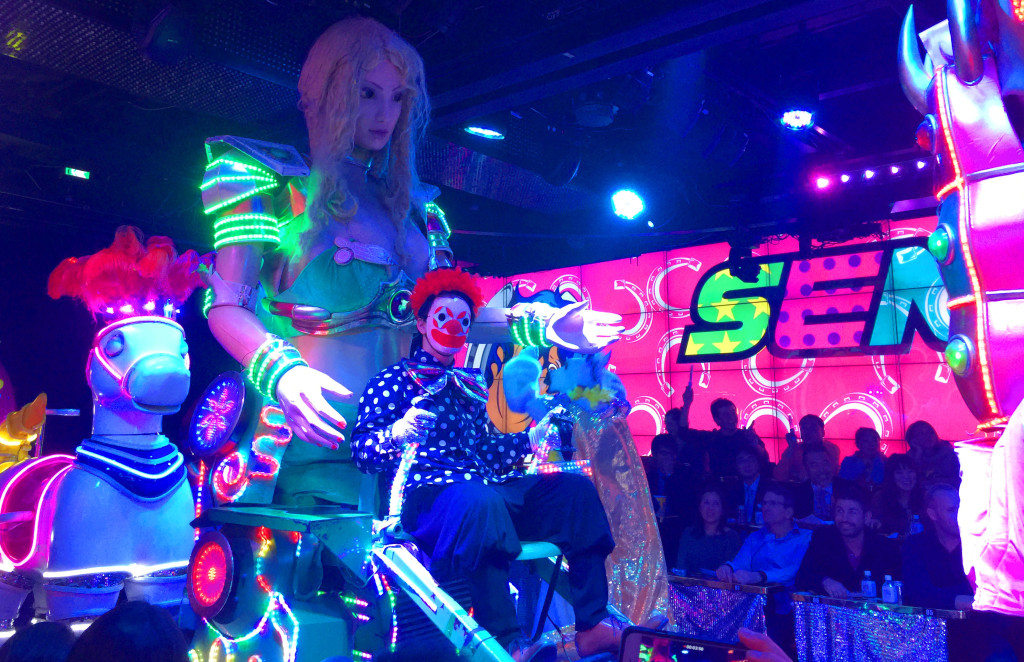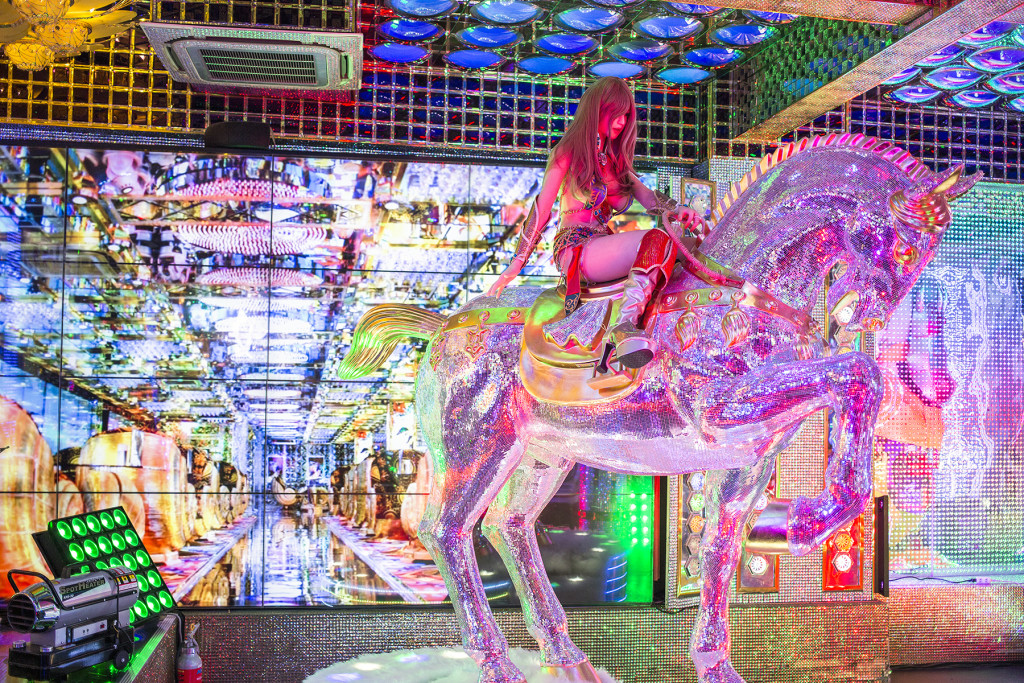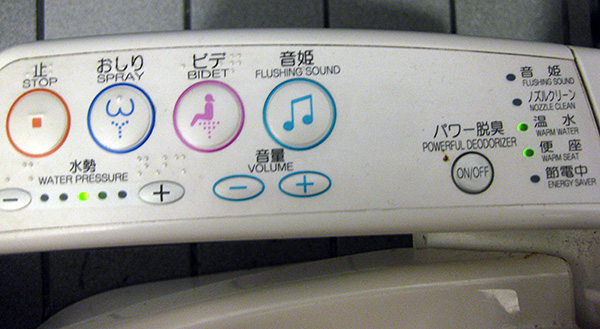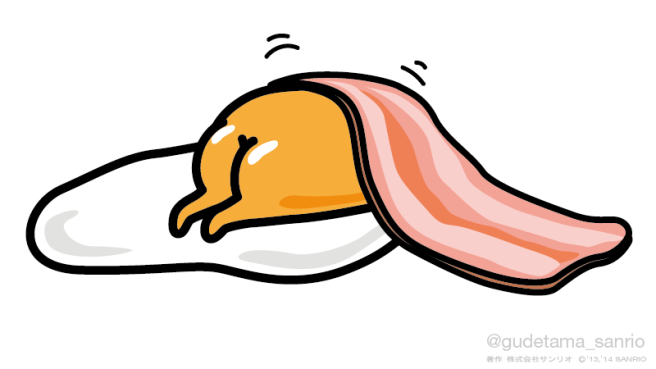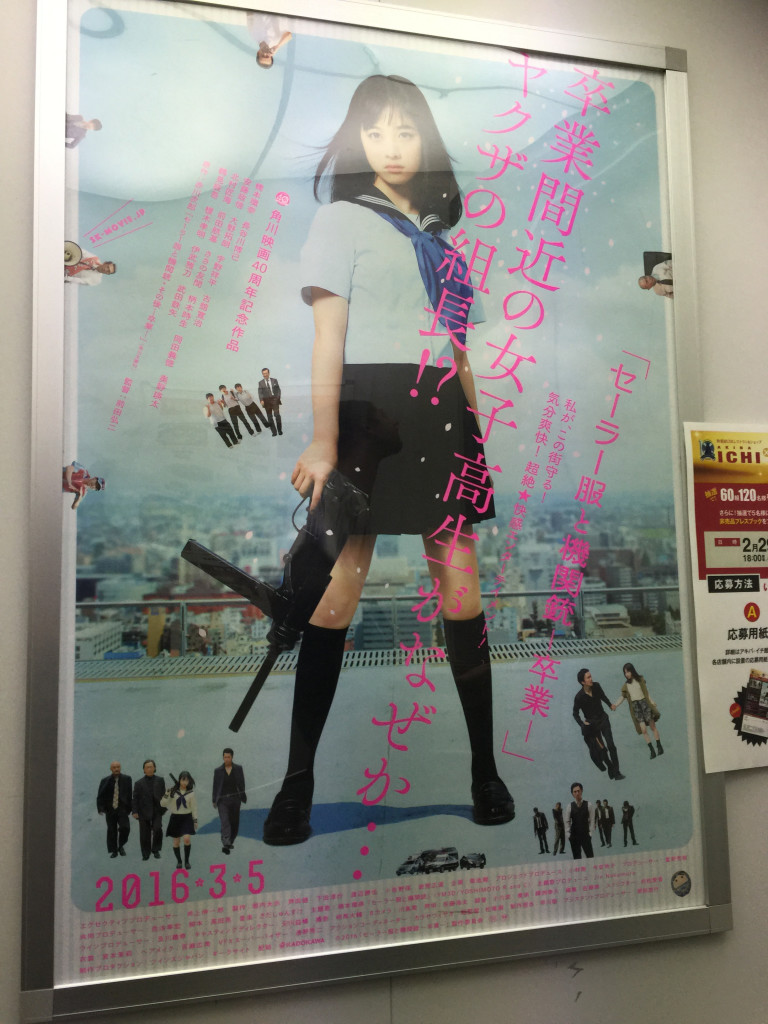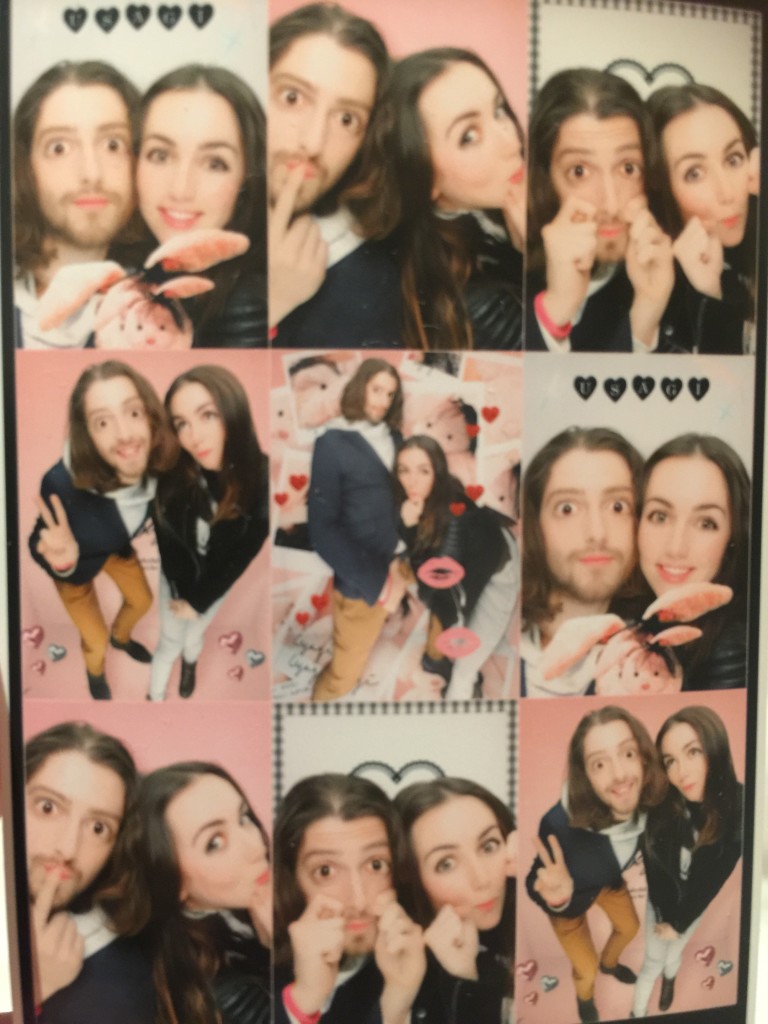I’d heard that Tokyo was one of the few parts of the developed world where you’d still experience some kind of culture shock, so when opportunity arose to visit I snapped it up.
The very first impression of the city is just how modern it is. You know how you see old depictions from the 50s or 60s about “the future”, and laugh at how far wrong/far behind their expectations our modern day cities turned out to be? Well Tokyo is the exception. Seemingly rail-less pointy-nosed hyper trains float silently by, toilets are automatic, interactive and very special (more on this later). Everything is organised, digitalised and perfectly ergonomic, much like the people, who appear so conscientious and helpful it’s like stepping 5-10 years into a very pleasant future..
Except for it doesn’t feel like our future. Remember when Doc and Marty go forward in time, then back, screw some shit up and end up in some tangential future reality where everything’s just a little bit odd*? That’s what 2016 in Tokyo is like, and here’s a few reasons why:
Cultural contrasts
There’s a mind-boggling contrast between old and new in the city. You’ll be walking past a silent, perfectly minimalist temple garden, straight into a street adorned with more glaring neon colours than your brain could imagine, advertisements and flashing Japanese characters filling every pixel of your newly digitalised field of vision. It borderlines on visual assault – I can’t imagine what it’s like for a native speaker who can actually read it all.
And then there’s the Robot Cabaret. If you’ve been to enough EDM festivals to not be shocked by colours and lights, think again. Imagine the last Mad Max movie but all the characters are on acid and the set and costumes were designed by the Beatles during their psychedelic phase and then put through ten more neon filters and thrown in a washing machine full of rainbows and then some 7 year old girls charged up on Skittles were told to go nuts with glitter.
That’s the robot cabaret show.
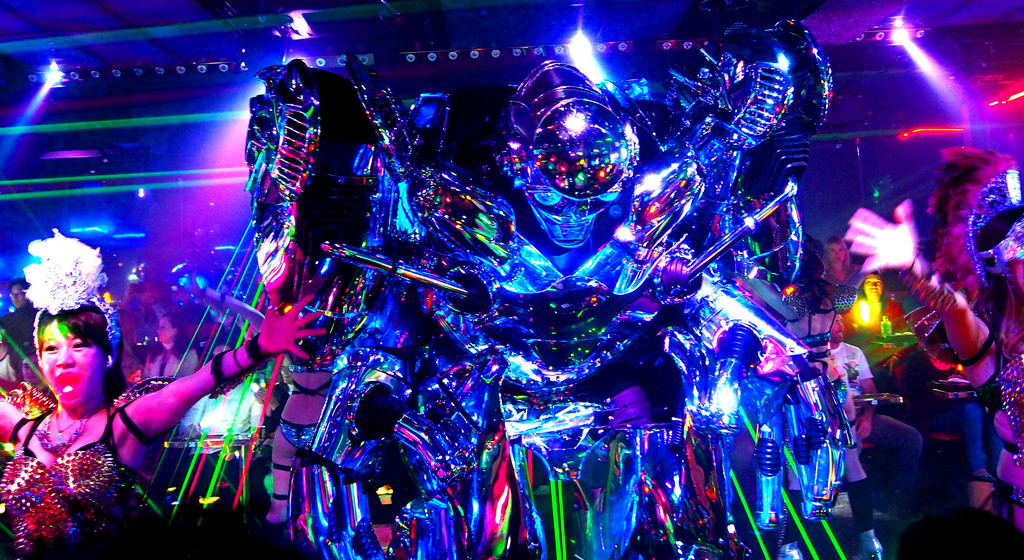
You can go there stone cold sober, not drink a drop, and be guaranteed to leave fucked up.
Cleanliness
At any given moment, approx 30% of people are wearing surgical face masks. They’re wearing them on the train, in restaurants, driving in a car, talking on the phone in the street. They’re so prevalent it makes you wonder why EVERYONE isn’t wearing one ALL THE TIME. What drives one’s decision to wear one on some days and not on others? I’d heard people mostly wear one out of consideration for other people if you’re sick. This is absolutely awesome in my opinion, and just one of many demonstrations of how considerate the Japanese are. But then surely not such a large % of people are unwell at any given moment, so that’s probably not the only to mask-or-not-to-mask decision factor. Is it even healthy? Does it increase or decrease one’s own immune system? So many questions.
As you would guess, cleanliness is extremely important in Japan. You are given wet hand towels everywhere. Hand-shaking just doesn’t happen, and casual touching is rare to see. For germophobes like me, it was heaven. EVERY toilet, even the public ones on the subway are spotless, automated, fitted with pressure-adjustable, front and rear cleaning water jets and an optional recording of loud, running water to mask whatever noises your body makes that you find embarrassing. It makes our western bathroom habits feel utterly savage.
Cartoon Characters
Cartoon characters in Japan appear to be as popular as actual human celebrities. These two dimensional beings are marketed hard, and the marketing works. I started out thinking they were stupid, childish and kinda creepy, but after a few days I cracked. Having a HelloKitty phone case became a completely reasonable idea and the weirdy-bendy banana TV-Tokyo mascot called “Nanana” made me smile whenever his image appeared. But my absolute favourite was Gudetama. He’s a depressed looking fried-egg yolk who constantly looks like he’s *just* fallen over. I don’t know who owns his image, but they now have all my money.
“Kawaii” is the Japanese word for cute, and it is a major part of their culture and quite delightful. What isn’t so delightful is the blurring of the lines between kawaii and sexuality. For example, it’s totally normal to walk into what appears to be a toy shop, with all the sweet cuteness and Disney-like characters, and have them next to dolls with big child-like eyes and sweet innocent smiles holding candies just like little girls usually do. However these dolls also have huge, extremely well defined breasts and a plastic skirt casually blowing up to reveal skimpy underwear. And this blurring of the lines is not limited to animations and figurines – in real life the “I’m-definitely-under-20-and-maybe-under-14-but-aren’t-I-cute-and-sexy” look is a big thing there as you can imagine. Borderline stuff.
This example image was the only one I was comfortable with posting, and it’s a promotional poster of a schoolgirl with an AK47 and her gang of older male associates. Hmm.
Organisation
Everything in Japan seems to be planned really, really well and everyone and everything is perfectly on time. Nothing seems to break down, ever. All interfaces, maps etc are so intuitively and elegantly designed that you can be completely illiterate in the language (which I obviously was) and get by just fine, and if you can’t figure it out, some kind person will go out of their way to help you. It’s like entropy just isn’t a thing in the Japan universe.
Service and Honour
The service is of highest standard I’ve ever seen, whether it’s in a mid-range hotel or a cashier in a 7-eleven (which are everywhere). Everyone is impeccably polite and go to maximum lengths to please the customer. The cab drivers wear uniforms and tell jokes, waiters endlessly fuss over you with large smiles. I didn’t see a single employee with a disgruntled, bored or impatient demeanour. And better yet, tipping does not exist in Japan. It is not only considered unnecessary, but it often creates confusion and social pressure on the person being tipped to have to return a gift themselves.
So if not for financial gain, why IS everyone so unbelievably nice and proper?
Well it turns out that maintaining one’s honour is a really big deal. Politeness is considered essential for a smoothly running society, and seemingly everyone follows that rule. It’s not known for sure where this originated from historically, but these attributes are ingrained so deeply that dishonourable behaviour incites serious social stigma and therefore not an option. It should therefore be no surprise that Japanese crime rates are some of the lowest in the world, and I truly never felt safer walking around a big city.
Of course, there’s bound to be some downsides to this social rigidity. Corporate hierarchies, especially for women, can be very restrictive and imbalanced. There’s some very draconian laws (especially around personal drug use), and evidence of excessive pressure on defendants to give confessions.
However, from the viewpoint of traveller who’s used to the jaded hustle of Vegas, the Japanese way of dealing with strangers is a breath of fresh air, and could make life a bit more pleasant here if we incorporated some of it.
Replacing the Kardashians with Gudetama would probably help too.
*note that Doc & Marty end up in a *bad* tangential reality, where Biff is in charge and everything has generally gone to hell. Tokyo is significantly more utopian.

